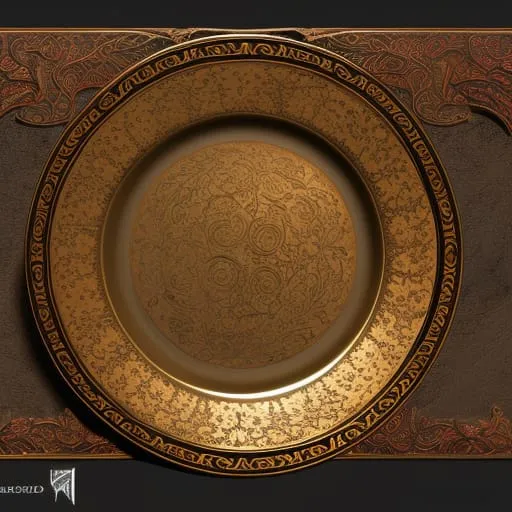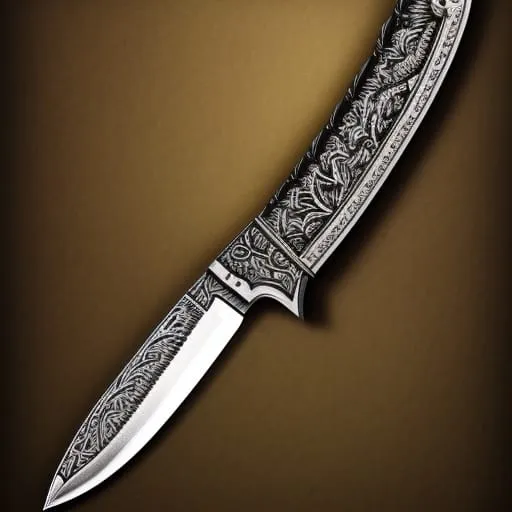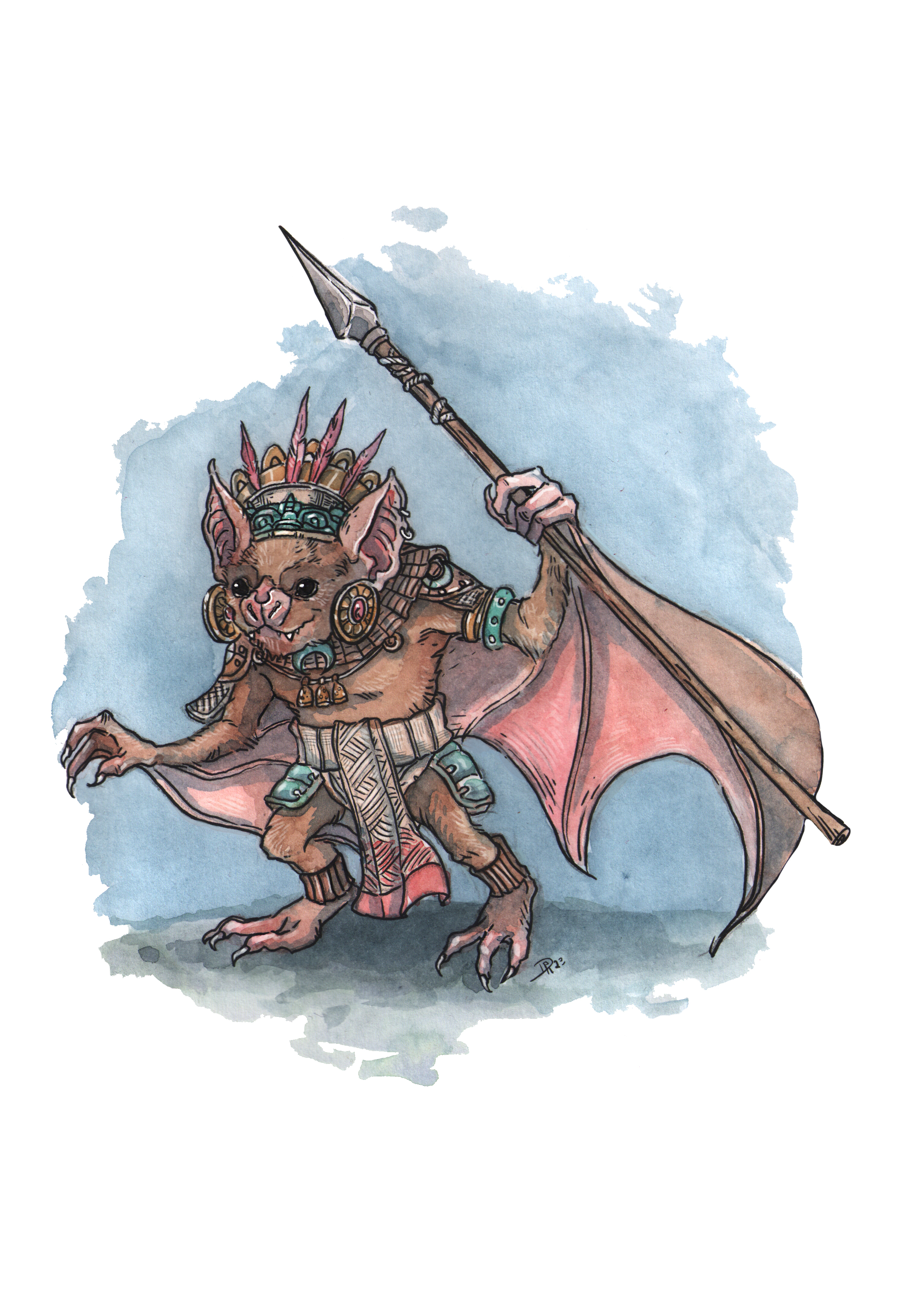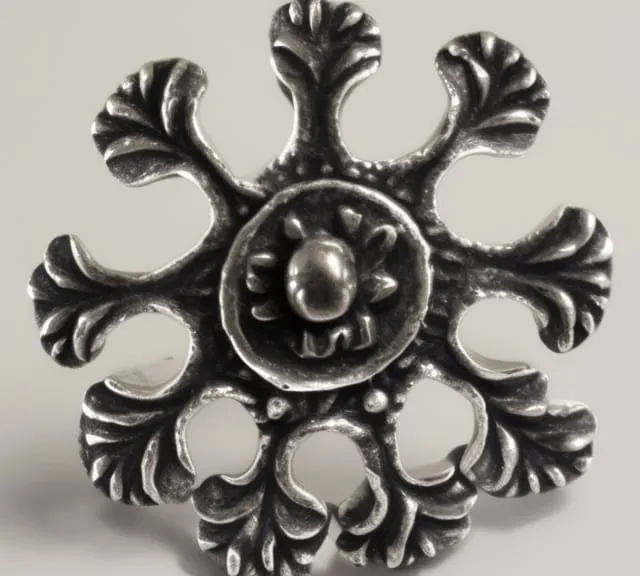Meckelorn Feasts and large group meals
Technically, Meckelorn throw feasts very often, but the line between "special occasion feast" and "everyday meal" is often blurred in Meckelorn society. Even being simply invited to a normal meal follows much of the same etiquette as a formal feast.
Sharing food is considered an act of great honor and guests are expected to be appreciative of their host's generosity and not to waste food regardless of whether it's a full feast or just a meal. dwarves also consider sharing a meal a bonding experience and try to have enjoyable conversation and work in fun activities if possible.
If the local geography allows, many dwarf clans prefer to eat even their everyday meals in large dining halls with their full extended families rather than have everyone eat in small groups in their home caves and dwellings. Most Meckelorn settlements try to set up as many public or semi-public dining areas as they can afford to.
It is also common for several families united by clan or marriage ties to share large communal kitchens and prepare meals at a greater scale than a single family meal, at least in more populous areas.
In smaller, more sparsely populated Meckelorn settlements, dwarves tend to prepare and eat meals as single family units, similar to how most humans eat their everyday meals in Scarterra.
History
In every culture in Scarterra, at least part of the motivation of the host is to demonstrate the status of the host by showcasing their wealth and generosity. This is magnified with Meckelorner dwarves.
Meckelorn is relatively prosperous now in the 1800s, but they had some very lean times in the 1600s and 1700s and they still have grey haired elders who will tell the younger dwarves how good they have it and past famines are documented in history books. Of course during Meckelorn's long state as a nation in exile, they had no feasts at all.
Despite the fact that Meckelorn feasts tend to have less fancy spreads than most human nation's feasts, they arguably have cultural greater weight. Sharing of food is considered a sign of great honor and guests are expected to be respectful and grateful for it.
The Kingdom of Meckelorn is fairly isolationist so they have not picked up many human or elven feasting convention but they have assimilated a little bit of gnomish and kalazotz culture which has had a cumulative effect of making Meckelorn feasts less stodgy and formal than they were in yesteryear. If dwarves could time travel, they would be amazed at how stodgy and uptight their ancestors were during feasts before the Great Exile.
In Meckelron vernacular, "going bats" is often a euphemism for loosening up. It is noteworthy that clans with very close ties to the kalazotz tend to throw informal parties and feasts and clans with loose or no ties to the kalazotz tend to throw more formal events closely ressembling pre-exile era Meckelorn banquets.
Historical records indicate that before Meckelorn's time of exile, Meckelorn feasts were a lot more rigid and formal, and they didn't place as much of a stigma on wasting food.
Execution
Hosts of Meckelorn feasts are trying to showcase their great generosity but dwarves, especially Meckelorner dwarves, hate wasting food. The most important rule of etiquette at a Meckelorn is "take all you want, but eat all you take."
Most human and elven feasts gather up the leftovers from the feast and give them as alms to the poor. dwarves don't do this often, Meckelorner dwarves don't really practice this at all. That is not to say the dwarves have no compassion for the bottom rung of their society. Dwarf leaders work hard to make sure everyone has gainful employment, but they do not generally believe in handouts. Infirm or disadvantaged dwarves are expected to get support from their clans, not society at large. Outcast or clanless dwarves have a rough time.
"Formal Meckelorn banquets are rather rowdy affairs than compared to what you see among human nobility, but this does not mean you can belch and fart in front of the Thane and his famiy. Common sense applies. -Jaromir, former Fumayan ambassador to MeckelornOutside of Meckelorners trying to leave clean dinner plates at the end of a meal, feasts are pretty informal relative to human and elven feasts. Dwarf feasts tend to certainly be noisier than human and elven feasts. dwarves are famous, or infamous for being loud and direct in normal conversation, Even at formal banquets, it is not uncommon to have guests at a dinner party boast, sing, tell baudy jokes, and otherwise talk loudly. Another thing that sets apart Meckelorn feasts (and everyday meals) from the dining practices of other cultures is there is less seat and table placement. It is common for diners to switch seats multiple times during a long meal so they can get some conversation in with a wider variety of guests. If there is a huge gap in the status of some of the people there, such as a royal banquet, typically the lower status diners stay put and wait for the high status people to come to them, but if a meal is made up of relative equals, everyone is likely to be rotating their seat often. Some feasts will have musicians playing during the meal, but this is relatively uncommon. Some formal feasts have plays or storytellers involved but these entertainments usually come after the meal, not during the meal. For one thing, with how noisy conversation is, no one could hear a performer during a meal.
Components and tools
Dwarves often go as far as to eat their bread trenchers at the end of a meal. Dwarf bread trenchers are generally made of higher quality grains and served fresher than other trenchers for this very reason, but also dwarves are more likely to eat off metal or ceramic plates than humans or elves.


Fancy dwarven plate by Me, using Nightcafe
Dwarves of course are famously good miners and metalworkers. They also have skilled potters, so you rarely see dwarves eating with wooden plates, bowls, and cutlery. Their metal and ceramic dinnerware is generally of high quality and other races' upper classes will often pay good money for dwarf-made cutlery and plates.
While dwarven feasts can be rowdy raucus affairs, breaking plates and cups is highly frowned upon, a faux passe only exceeded by wasting food.
Hosts normally apply plates and cups, but dwarves often carry their own cutlery with them. A lot of dwarves have unnecessarily fancy cutlery made of fine materials. Even dwarves that are not especially wealthy will often have spoons, forks, and knifes with large intricately carved wooden handles.

fancy silver knife by Me using Nightcafe
Dwarf 1: "That is a fine craftsmanship on the knife handle? Is that of your clan?" Dwarf 2: "Why yes, this was crafted by my grandfather and originally gifted to my parents on their wedding day..."
Participants
Some dwarf nobles holding high positions will host general banquets with varied guest lists, but most Meckelorn feasts are clan based though they regularly invite trusted friends and allies of the clan.
Many clans have treaties of friendship with other clans, so it is not uncommon to find feasts involving two or sometimes three closely knit clans. Wedding feasts of course, involve both the bride's and groom's respective clans.
Guests from other clans are generally expected to show a greater show of restraint and decorum than the clan members associated with the host.
Non-dwarf dinner guests are expected to conform to the dwarf norms of etiquette as best they can, if anything they are held to higher standard. The two main non-dwarf minorities in Meckelorn are gnomes and kalazotz.
Gnomes are famously good at reading social cues and assimilating to new cultural environments and the Meckelorn gnomes have been staunch allies to Meckelorner dwarves for at least two millennia.
The kalazotz have only been allies of the dwarves for less than five centuries, which sounds like a long time, but dwarves are not quick to adapt to changing circumstances,
Some dwarf clans have fully embraced the kalazotz as brethren and others prefer to keep them at arm's length. Even many dwarves who view the kalazotz as valued allies often don't want to share meals with them.


Commissioned kalazotz on foot, grey background by Diana Rahfoth
While kalazotz are generally peaceful and kind-hearted, their animal instincts tend to come out when they eat. Kalazotz prefer to eat with their hands (or with their prehensile feet) rather than with fancy utensils. Also, the kalazotz and dwarf palates are often very different indeed as they consume things like giant grubs or rabbit's blood.
"The bat folk ask for little and provide us much. Thus, I am happy to pretend I’m not grossed out watching them eat." -Elder Toregarth Greystone
Observance
Dwarves of great financial means are welcome to throw a feast whenever they want, but Meckelorn has relatively fewer feast days than most other Scarterran nations. They simply don't have enough food to throw lavish feasts on the regular.
Most Meckelorners try to host or attend a feast on the anniversary of the liberation of the Great Stone of Meckelorn and they will prepare for weeks or even months before this.
Most clans of modest or greater means have at least one annual feast celebrating a personal anniverary that is important to the clan.
 Weddings are a big deal in dwarf society, and families that can afford to do so try to have at least a modest wedding feast of some sort. Because they have relatively few Stewards of the Gift, Meckelorn does not place as much emphasis on formal harvest festivals as most human and elven nations do, but it is very common to schedule most wedding near harvest time, so it is easier to gather up the necessary food for a wedding feast and most dwarf weddings will at least involve a token prayer to Korus to ask for his blessings of fertility and health apon the young couple as much if not more so than they want to invoke Mera's blessings. Dwarf clans with lots of kalazotz and gnome influence tend to lean towards Mera and clans with low influence from kalazotz and gnome influence tend to lean towards Korus.
Weddings are a big deal in dwarf society, and families that can afford to do so try to have at least a modest wedding feast of some sort. Because they have relatively few Stewards of the Gift, Meckelorn does not place as much emphasis on formal harvest festivals as most human and elven nations do, but it is very common to schedule most wedding near harvest time, so it is easier to gather up the necessary food for a wedding feast and most dwarf weddings will at least involve a token prayer to Korus to ask for his blessings of fertility and health apon the young couple as much if not more so than they want to invoke Mera's blessings. Dwarf clans with lots of kalazotz and gnome influence tend to lean towards Mera and clans with low influence from kalazotz and gnome influence tend to lean towards Korus.
Relative to human and elven nations, Meckelorn does not often have major feasts on holy days of the Nine, Seasonal Stellar Days, or Tween Days. If anything, Meckelorn sometimes recognizes these days with a ritual fast rather than a ritual feast, especially Imbolc where Meckelorners commonly memorialize famous war heroes and Samhain where Meckelorners commonly memorialize their honored ancestors.

Silver Nine symbol #1 by Me adapting work from Pendrake via Nightcafe
Primary Related Location
Related Organizations
Related Ethnicities


Comments